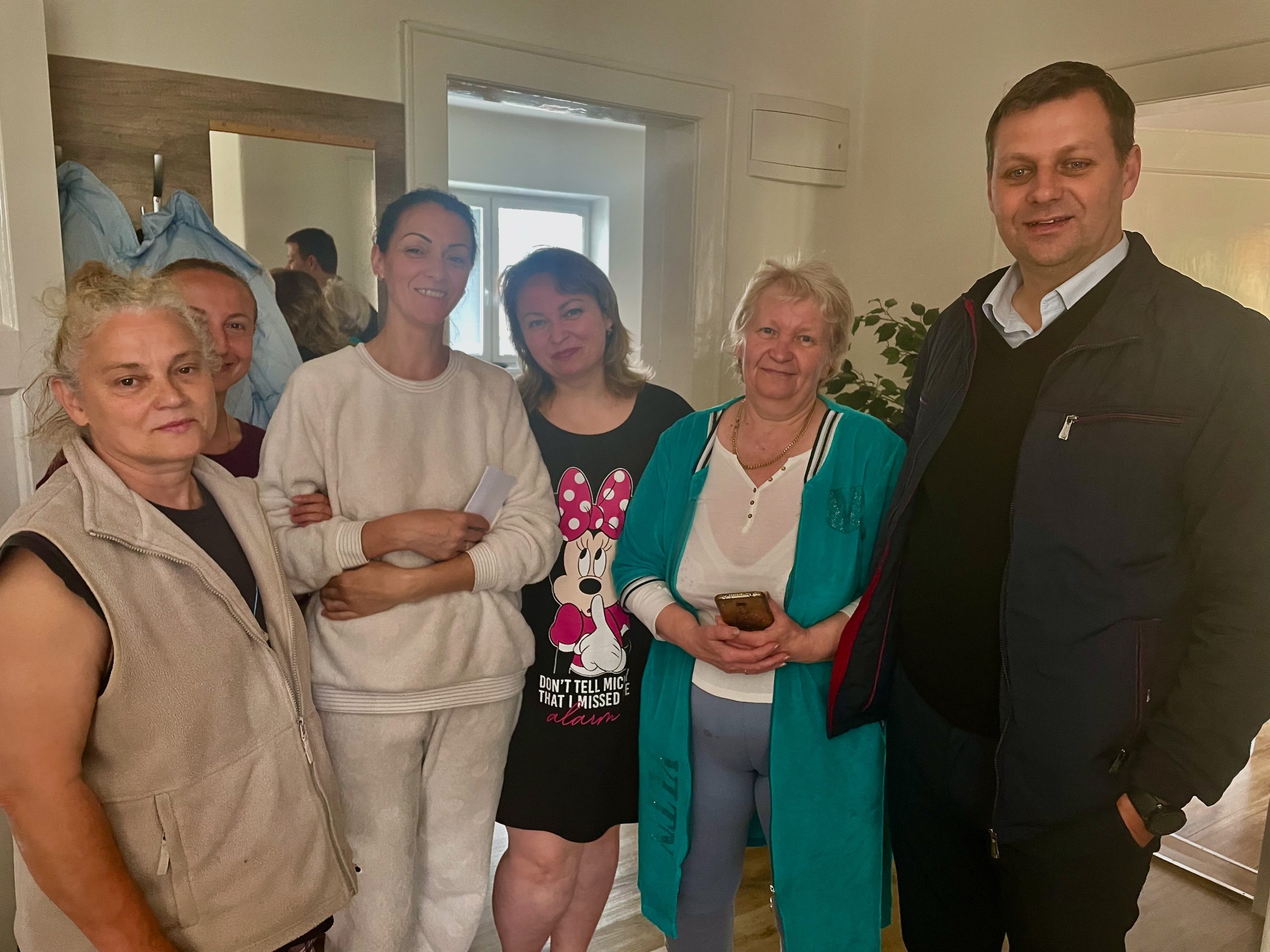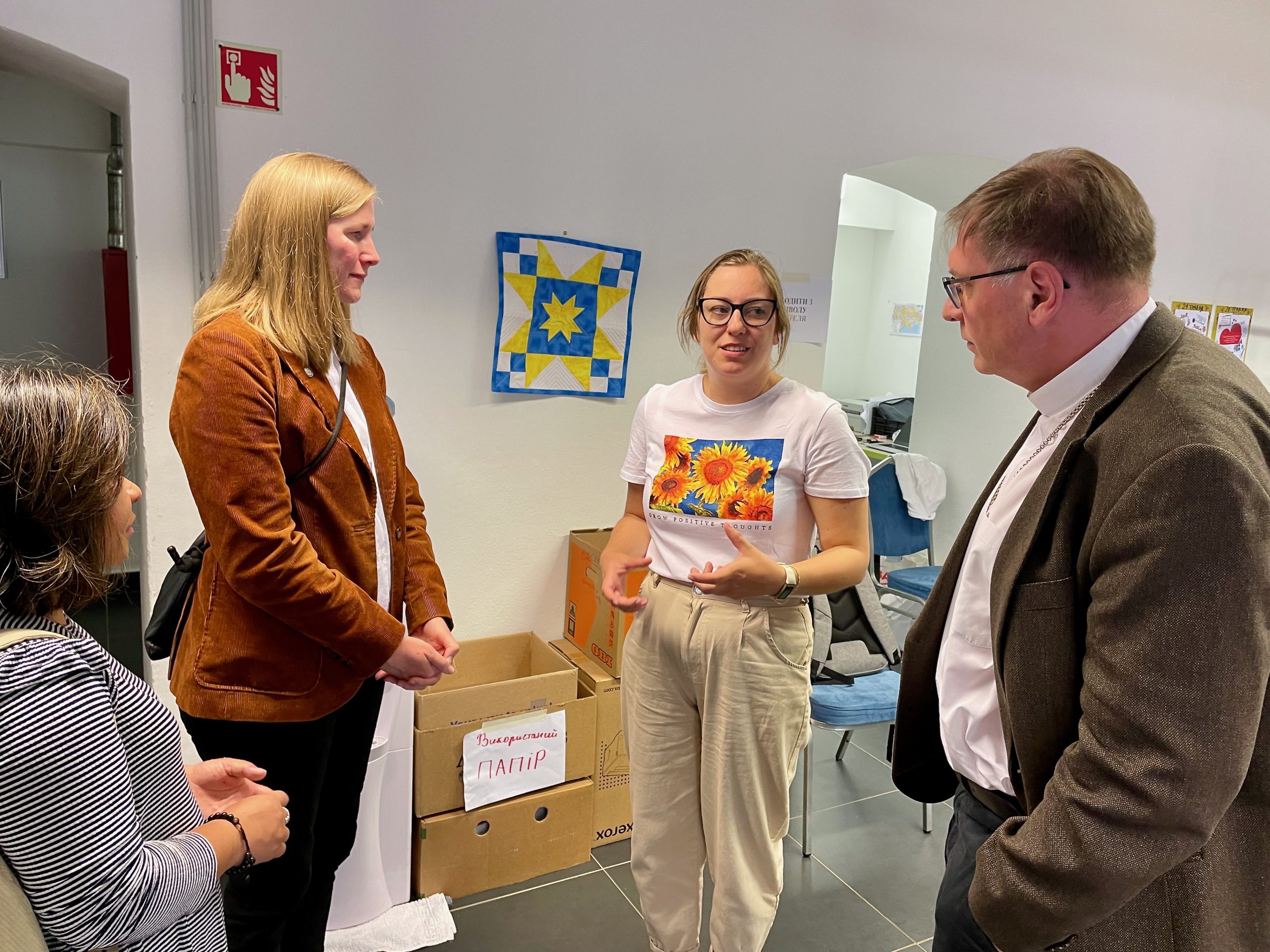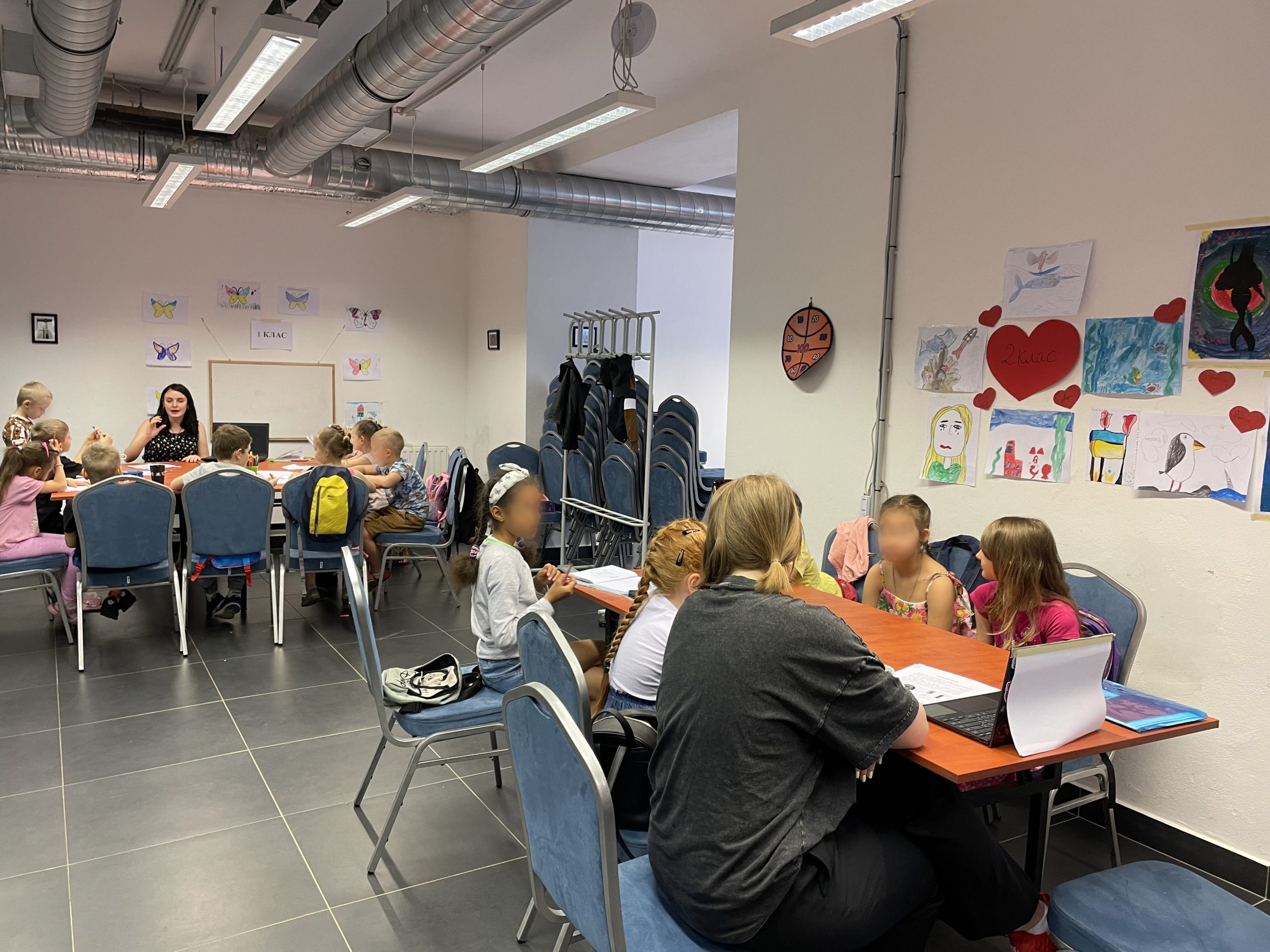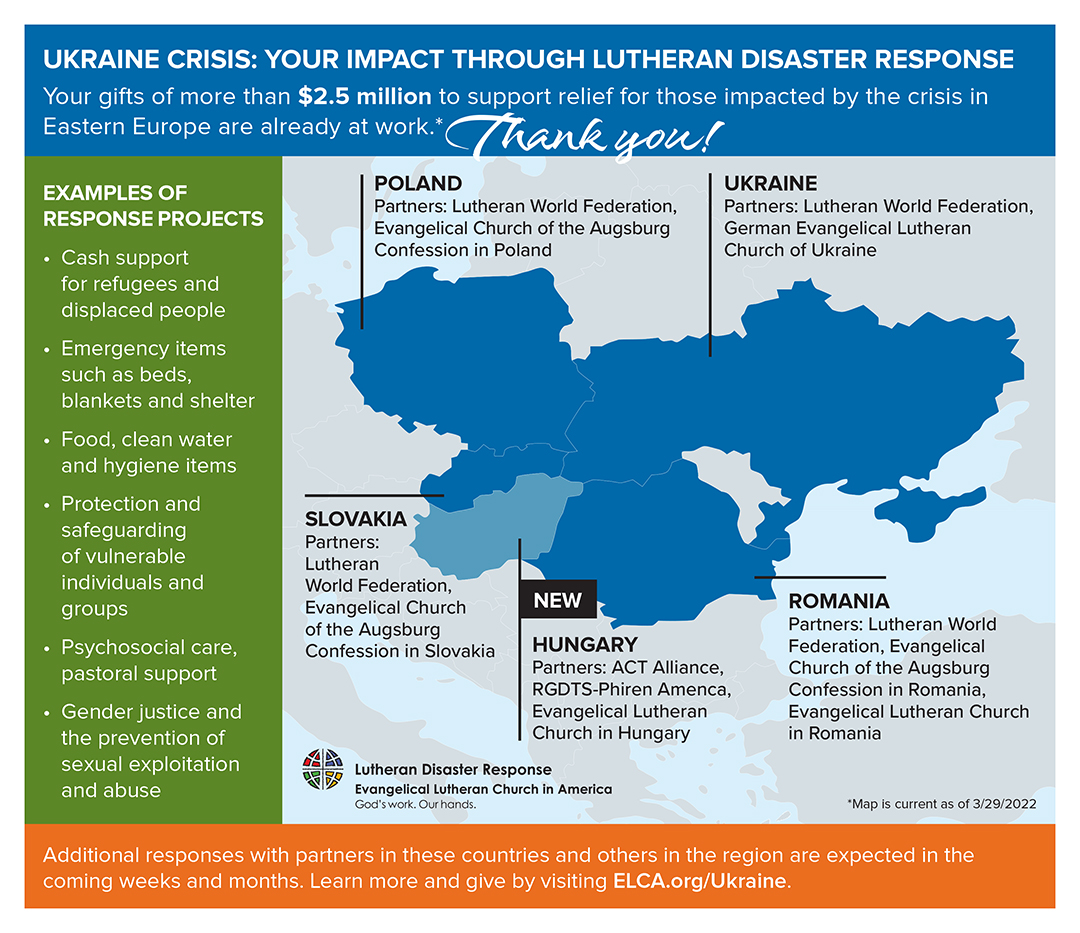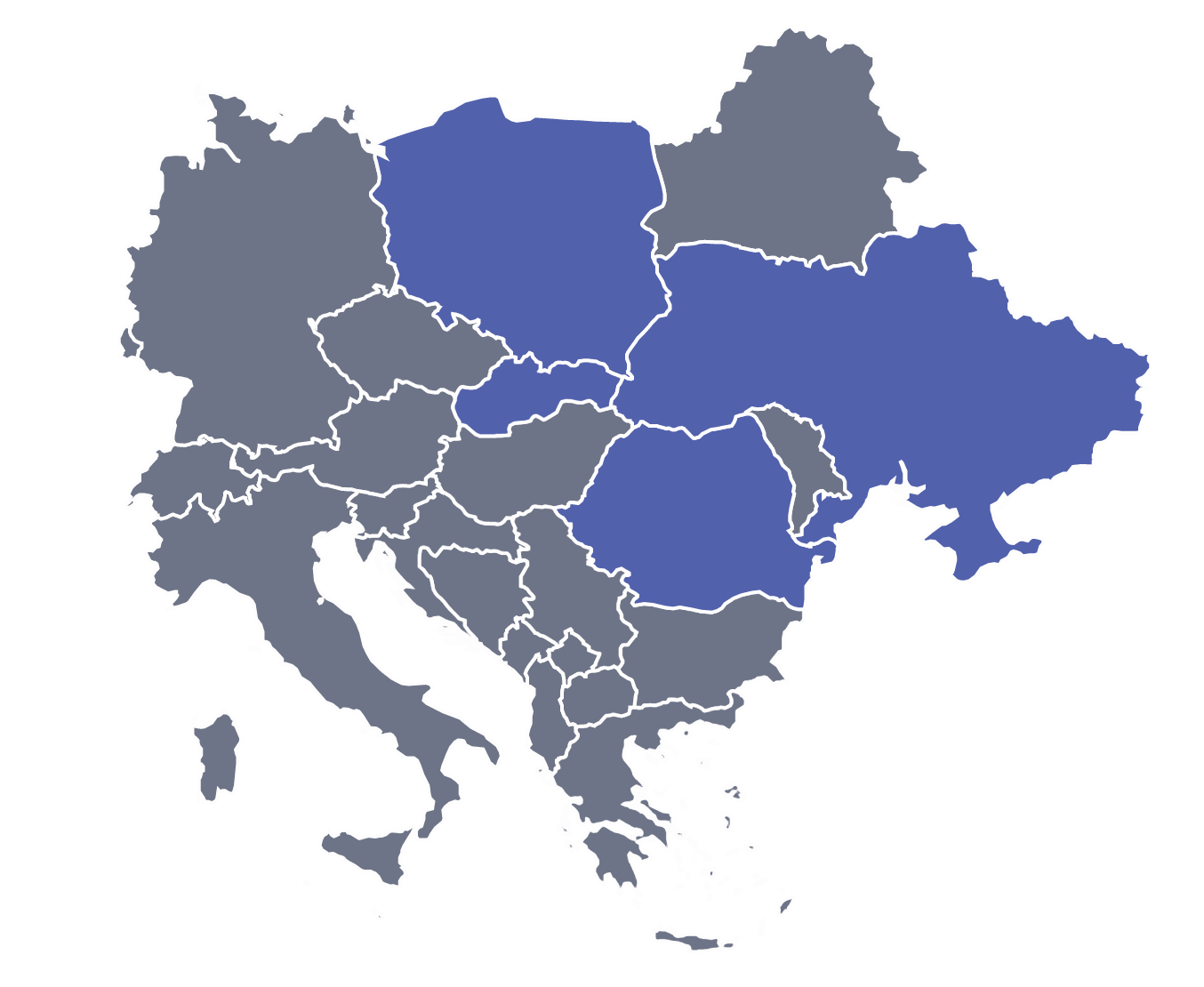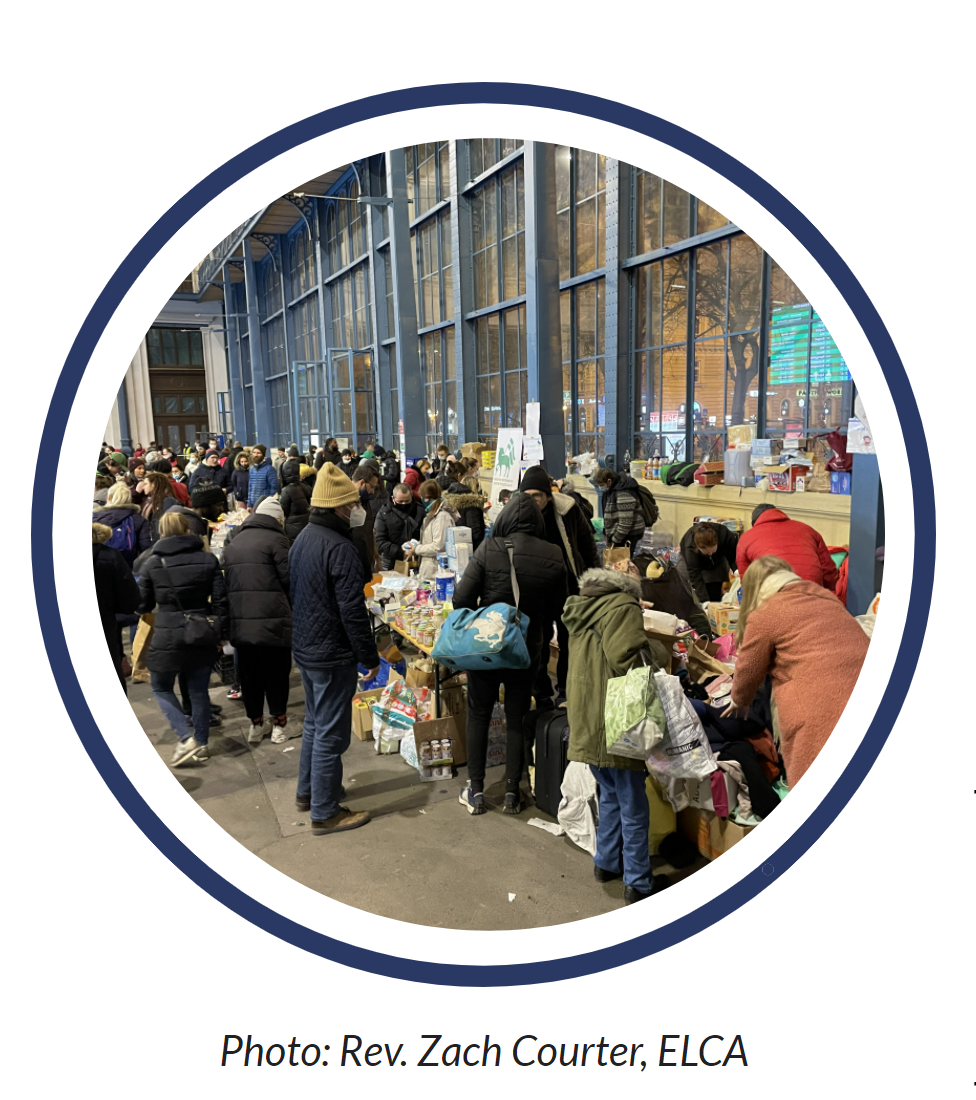Lutheran Disaster Response has raised over $10 million in support of refugees and internally displaced people in Ukraine and surrounding countries. New partnerships in Eastern Europe include:
- L’Arche has nearly 60 years of experience supporting people living with intellectual and developmental disabilities and knows they are among those most at risk in times of crisis. It is providing immediate relief to refugees with disabilities in Ukraine, Lithuania and Poland. Activities will include purchasing accessible vans to transport people with disabilities within Ukraine and along the border, building the capacity of local disability service providers and adaptations for people with disabilities who evacuated under duress without the necessary support for life with disabilities. This project allows L’Arche to live out their mission on behalf of those with disabilities and their surrounding communities as they work to survive and to help others to their greatest ability, even while under the threat and impact of the current war.
- International Orthodox Christian Charities (IOCC) is the international humanitarian aid and development agency of the Assembly of Canonical Orthodox Bishops of the United States of America. IOCC is providing humanitarian assistance to refugees and internally displaced peopele in Ukraine, Romania and Poland. This humanitarian assistance includes distributing essential items, securing temporary accommodations, training volunteers and helping students continue remote education.
- Lutheran World Federation has expanded its programming to the Czech Republic, where it is working with local partners and churches to retrofit multipurpose spaces to accommodate refugees from Ukraine.
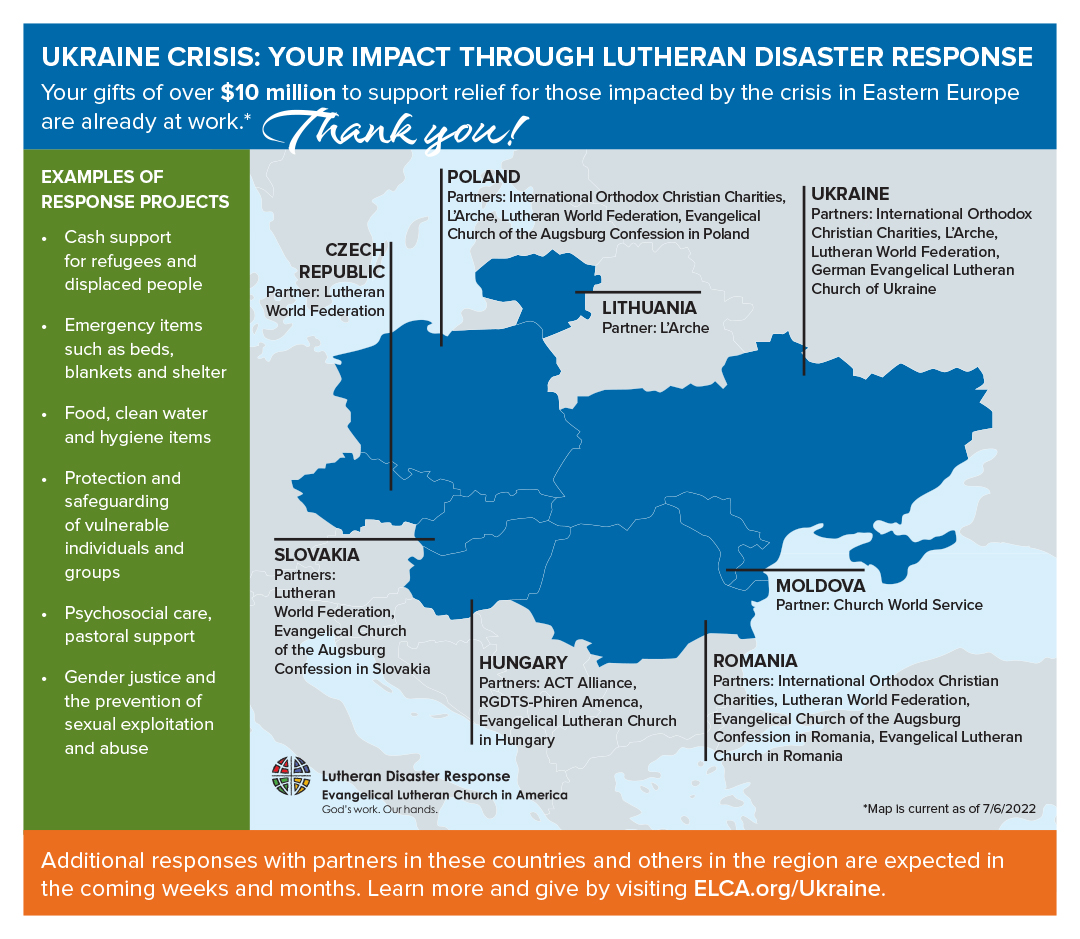
Partner Update: Evangelical Church of the Augsburg Confession in Slovakia (ECACS)
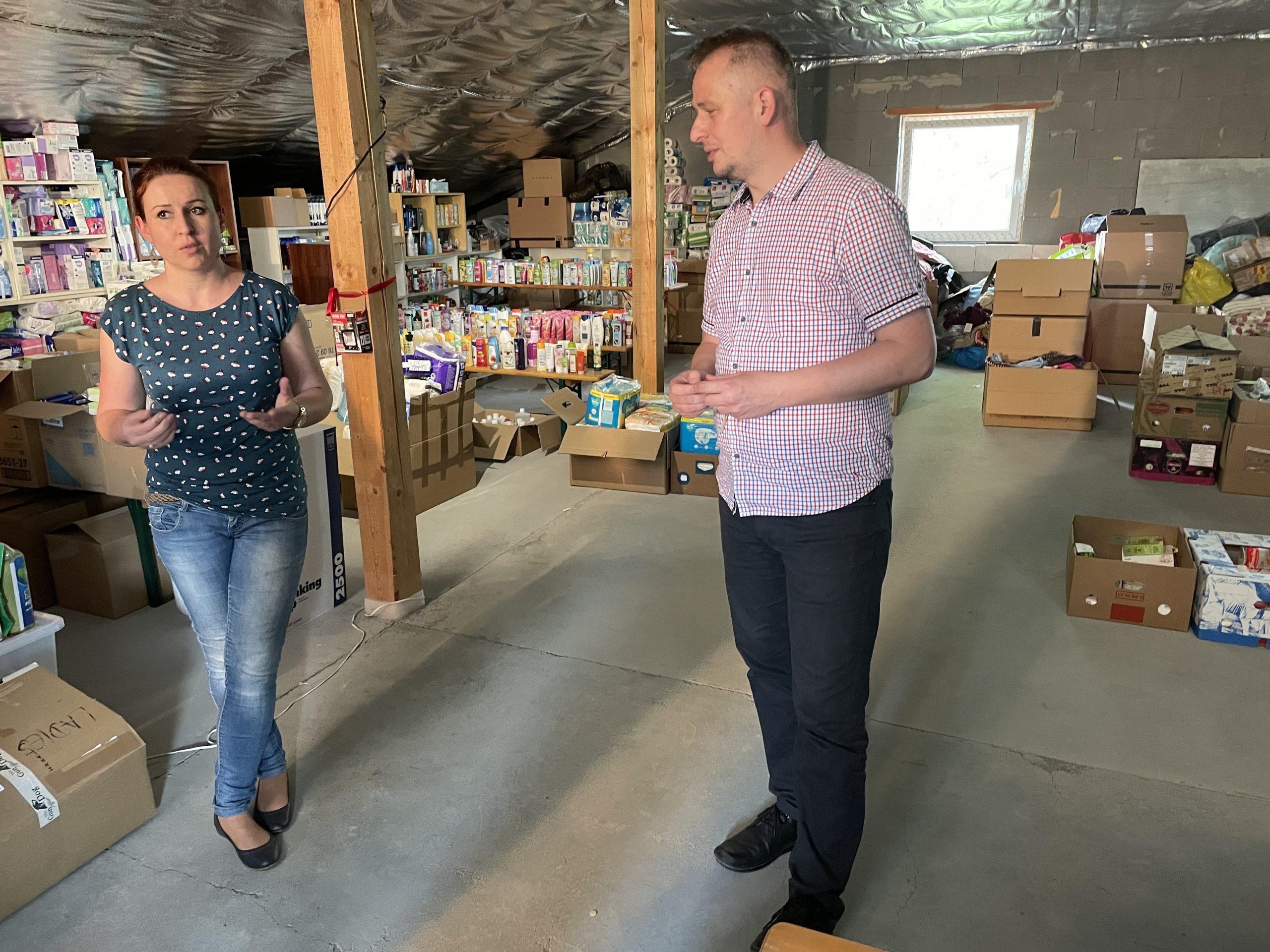
Warehouse in Pozdišovce, Slovakia, where the congregation stocked supplies to shuttle to the hospitality tent. Rev. Denisa Kuruc Vargova, pastor of the church, is pictured with her husband, Andrej Kurue.
Now four months since war began in Ukraine, the ELCA’s partners in Slovakia are assessing their response to date and planning for the medium and long term.
During the initial acute phase of the emergency, the Evangelical Diaconate coordinated a humanitarian tent at the Vyšné Nemecké border crossing, where volunteers from all over the region came to help. Working in 12-hour shifts, volunteers were available 24 hours a day, seven days a week to offer food, drinks, information and logistical assistance. The ECACS congregation in Pozdišovce, about a half hour drive from the border, stocked a warehouse with supplies that they shuttled to the border, and offered lodging for both refugees and volunteers.
“Some of these people have lost everything,” said Lucka Martonova, volunteer coordinator for the border ministry. “We are here for them, to provide some food, some water … accommodation, transport.”
As the situation evolves, needs are changing. A joint meeting of representatives of the Evangelical Diaconate ECAV in Slovakia and the Protestant Agency for Diaconia and Development – Diakonie Katastrophenhilfe took place in June to evaluate the use of existing assistance, monitor current accommodation needs and prepare for future cooperation. As the needs of the refugees change, so must the response of the church.
Be a part of the response:
Pray
Please pray for people who have been impacted by the war in Ukraine. May God’s healing presence give them peace and hope in their time of need.
- Download worship resources.
- Share the bulletin insert.
Give
Thanks to generous donations, Lutheran Disaster Response is able to respond quickly and effectively to disasters around the globe. Your gifts to Lutheran Disaster Response (Eastern Europe Crisis Response) will be used in full (100%) to assist those impacted by the war in Ukraine.
To learn more about the situation and the ELCA’s response:

